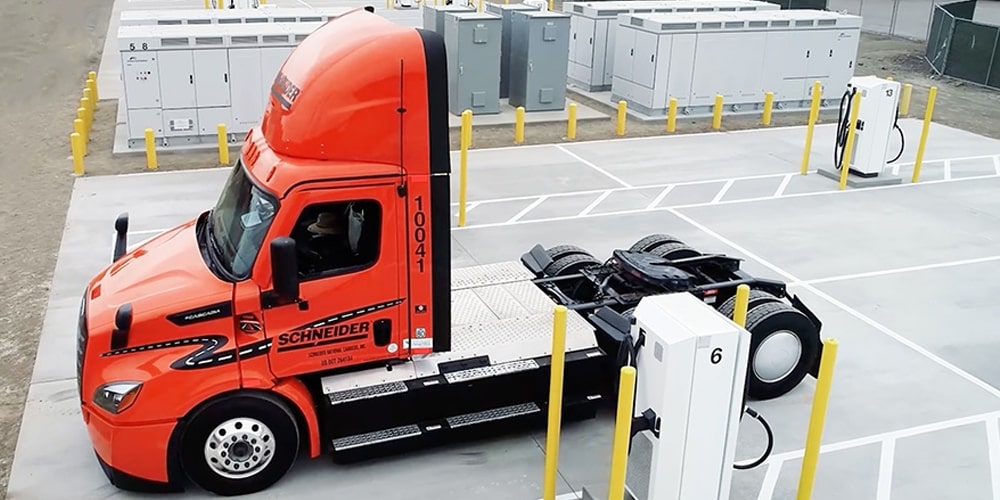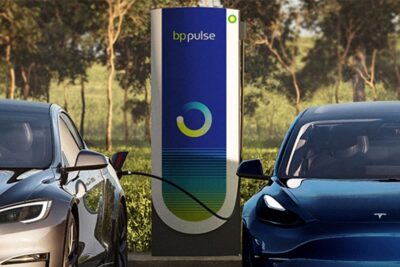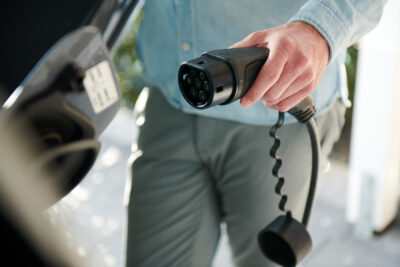Schneider National completes charging depot to power e-truck fleet
US logistics company Schneider National has announced the completion of a huge charging depot at its South El Monte Intermodal Operations Center in Southern California. The facility will support Schneider’s nearly 100 zero-emission trucks currently on order with Freightliner.
The new charging depot covers an area over half the size of a football field and is equipped with 16 charging columns, each capable of charging two trucks simultaneously with powers of up to 350 kW. The depot will enable Schneider to charge its growing fleet of eCascadia trucks on order with the US Daimler Truc subsidiary since September 2021. Schneider says the heavy-duty EVs will reach an 80% charge within just 90 minutes.
The South El Monte site strategically positions Schneider close to the metropolitan Los Angeles area and major highways. The company has already commenced deliveries for Frito-Lay North America and Goodyear using the new eCascadia fleet, which boasts an approximate range of 220 miles.
Schneider collaborated with industry partners, including clean transportation engineering and construction company Black & Veatch, to build the site.
Mark Rourke, President and CEO of Schneider, emphasized the significance of developing onsite charging infrastructure with partners, stating, “With the infrastructure deficiency, we found that we needed to collaborate with a wide array of experts to see our vision come to fruition.”
Dave Hallowell, President of the connectivity, commercial, and industrial sector at Black & Veatch, added the electric truck charging hub was a “monumental testament to innovation and collaboration”.
And the site received funding, first through the Joint Electric Truck Scaling Initiative (JETSI), to increase the number of zero-emission heavy-duty trucks on the road.
Funding was also provided for the electric trucks on order with DNTA subsidiary Freightliner. From the incoming fleet of 92 trucks, JETSI helped fund 50, with the California Air Resources Board and the California Energy Commission awarding $27 million for the initiative. The South Coast Air Quality Management District, Mobile Source Air Pollution Reduction Review Committee, the Port of Los Angeles, and Southern California Edison provided additional funding.
Beyond the JETSI-funded trucks, five of the additional 42 trucks in its fleet were jointly funded by the EPA and the Hybrid and Zero-Emission Truck and Bus Voucher Incentive Program (HVIP). The Volkswagen Environmental Mitigation Trust supports seven trucks, while the remaining 30 also receive funding from HVIP.
Schneider worked closely with Daimler Truck North America (DTNA) even before placing the order for the 92 trucks. From 2019 to 2020, Schneider piloted a truck for six months through Freightliner’s Customer Experience fleet, allowing for feedback from Schneider drivers and team, which resulted in the development and production of the trucks that currently comprise Schneider’s fleet.
David Carson, Senior Vice President of Sales and Marketing at DTNA, said the relationship was built over decades and now extended into EVs. “When initiating our electric vehicle development programs, we assisted Schneider as they started and scaled their Freightliner eCascadias fleet. They’ve provided our team with vital insight on the opportunities for battery electric trucks in the goods movement industry.”
Currently, Schneider has received delivery of approximately one-third of its expected fleet. Once fully operational, the company estimates the 92 electric trucks will potentially eliminate over 81,000 pounds of carbon dioxide emissions per day. This reduction is equivalent to removing 2,400 gas-powered cars from the road. Schneider aims to reduce CO2 emissions by 7.5% per mile by 2025 and achieve a 60% per mile reduction by 2035.





0 Comments